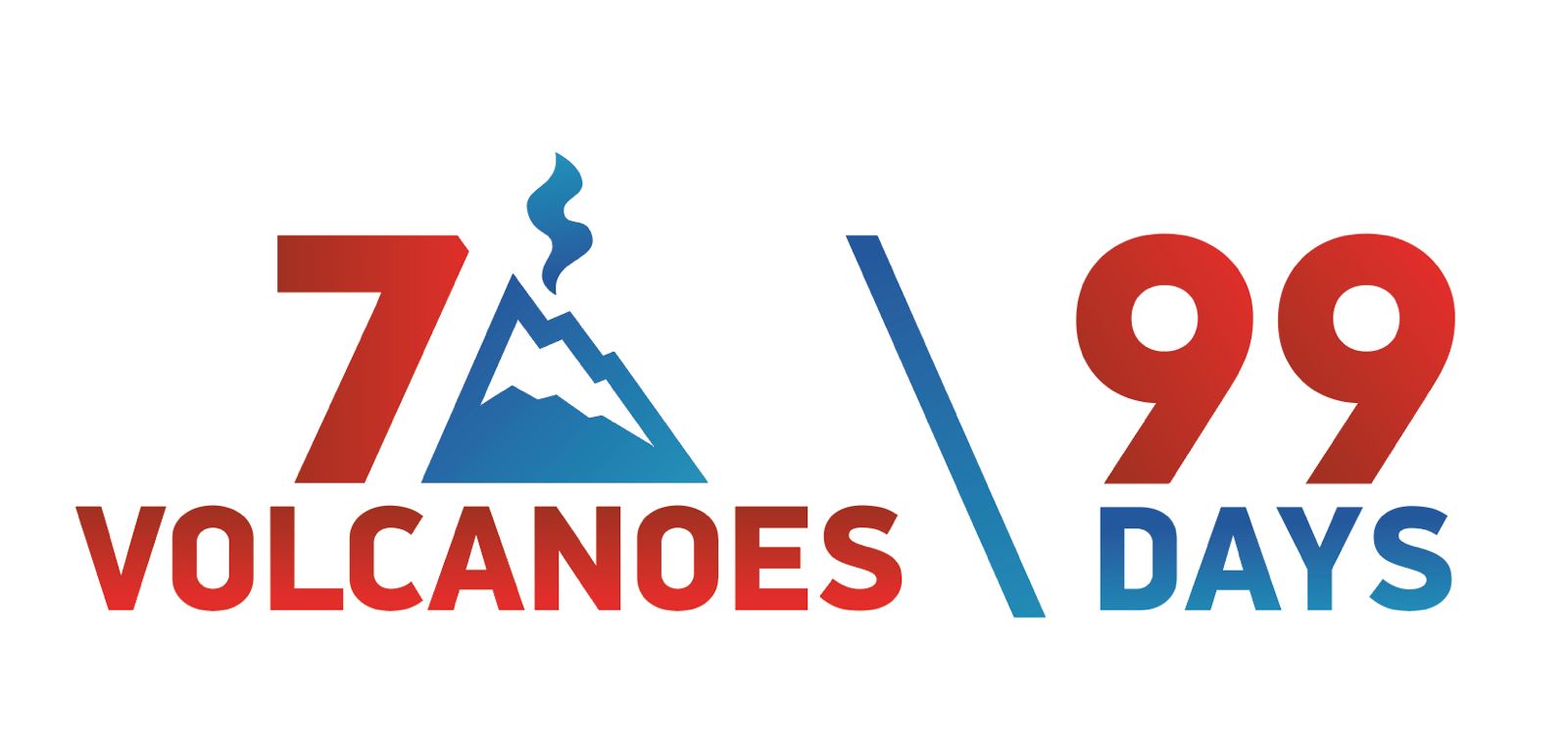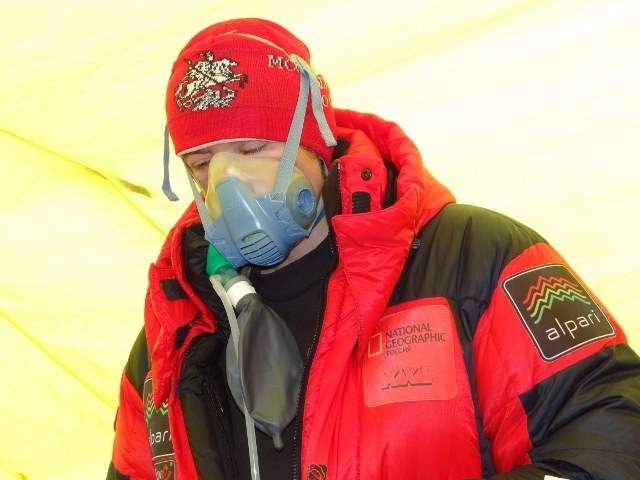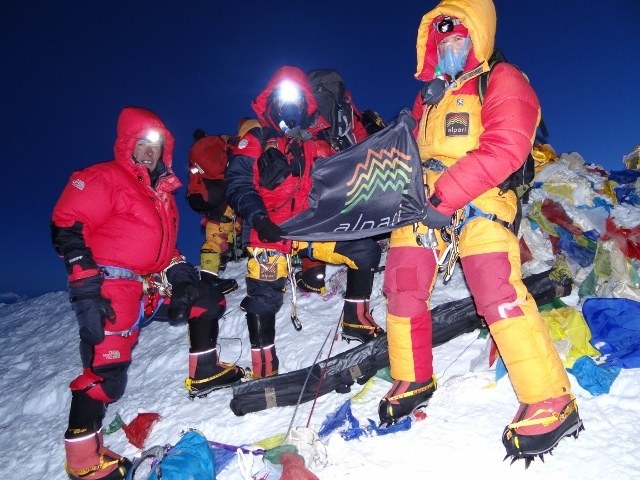Captain Korobeshko on summiting Everest: How we did it.
News from the Alpari team’s Everest expedition
Lyudmila Korobeshko reporting from ABC (6,400 meters)
Yesterday, on May 19, our team took the summit of Mount Everest. Honestly, two or three days ago I had doubts as to whether it would happen. On the North Col (7,100 meters) there were serious doubts as to whether we would all make it up together: I had a temperature and wasn’t feeling well, Ivan was being bothered by a cough and Max had gotten a little discouraged at the sight of us. If we hadn’t started feeling better he would have had to have gone alone and plant the flags and bring them back all by himself.
I even started to question whether it made sense to go up to 7,700, thinking it might be better to just head straight down from the North Col. That I wouldn’t make it above 7,700 seemed almost certain to me. When on the North Col my temperature shot up to 38.4, the guys thought I might have malaria (I was in African recently where on the last days there I began to get a temperature each evening. On the North Col I was literally shaking for about an hour). Surprisingly, however, when we made it to 7,700, I started feeling better. And the higher we went, the better I felt. Ivan’s cough, however, was only getting worse. By the way, he had told us much earlier that he has had some problems with his lungs for a long time. His doctors even forbid him from making high altitude climbs.
We spent the night at 7,700 meters without any problems. That’s of course if you don’t count sleeping at a 30-degree angle where you and all your stuff are always sliding down, and you need to use ropes to go to the bathroom, which is in full view of the whole camp.
The trek up to 8,300 meters turned out to be difficult: it started snowing and was windy. The tents at 8,300 are even more slanted than the ones below due to the terrain being steeper. Sleeping is out of the question: the best you can hope for is 3-4 hours of relative rest (drink tea, dry your boots, and gather your belongings). The plan was to set out at 22:45. By the way, in order to set out on time you need to start getting dressed at least an hour before you’re supposed to leave.
We started our ascent in total darkness. And just about immediately we came to a steep face which leads right to up to the summit ridge. Ivan was out in front and, it seemed to me, breathing quite heavily. Max was behind, shaking out his frozen hands. And heading up the mountain from behind was a procession of other climbers hoping to make it to the top on this first (and perhaps only) day with good weather. So we had to hurry and not let anyone pass us otherwise we could get stuck in ‘traffic’ at the difficult final pass — we could get too cold and our oxygen could run out. It’s a tough game!
It was freezing cold and gusts of wind just about knocked us off our feet. There were a lot of places where the ground crumbled under your feet, making slipping down the rock face a real possibility. At one point I fell. My ropes weren’t taut and I fell down a couple of meters and tore my down pants. The rest of the way I was walking in a cloud of the down feathers of my pants.
We made it to the top around 5 a.m. It was dark, early and cold. We stopped about 50 meters short of the peak in the hopes that we could wait and catch the sunrise from the peak. But after about 25 minutes we were frozen stiff. We ended up just going to the very peak. And there it was – shrouded in Nepalese prayer flags. We tried to shoot some pictures but the camera didn’t work. Our fingers were freezing and it was still dark.
The wind kept getting stronger and we had only limited supplies of oxygen. We started our descent. For safety’s sake, we needed to try to descend as much as possible, ideally to 6,400 meters. And here some problems began: we kept running into climbers making their way up. You can’t go around them, particularly in the steep places where you have to rappel*-especially at the Second and Third Steps. We waited for 25 minutes above the Third Step, letting other climbers pass. Then we managed to descend, somehow managing without ropes to get around other climbers. Below 8,300 meters, the weather is much worse. At 7,700 meters, high winds tear at the tents. At the North Col we ended up in a snowstorm. By evening we made it down to 6,400 meters. And that’s it.
We did it. It probably won’t hit us until later what we’ve done.
Hi to everybody.
The Alpari Team.
*Rappelling – descent using ropes and a special device called a figure-eight. The figure-eight attaches to the climber’s harness and allows climbers to make rope descents. By controlling the pressure on the rope, the climber can control the speed of his descent.





